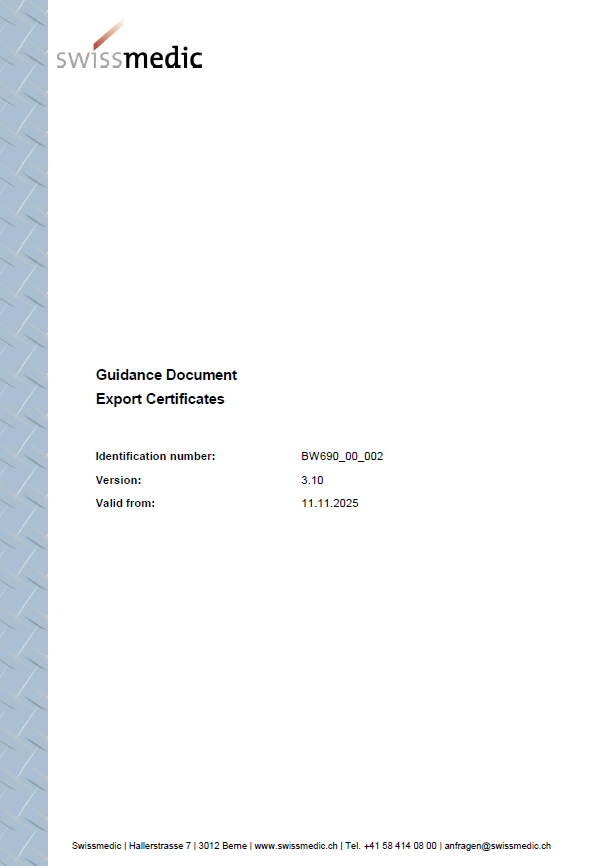Swissmedic Updates Guidance on Export Certificates: Key Implications for Medical Device Manufacturers
Swissmedic has released Version 3.10 of its Guidance Document on Export Certificates, detailing the requirements, procedures and documentation necessary for obtaining Free Sales Certificates (FSCs) for medical devices exported to third countries. The update clarifies responsibilities for manufacturers and authorised representatives based in Switzerland, and outlines the rules associated with both current and legacy legislation (MedDO, IvDO and former EU Directives).
Impact on Manufacturers
Even though export certificates are issued by Swissmedic, the revised guidance places significant operational and compliance responsibilities on manufacturers:
1. Stricter documentation and conformity evidence
Manufacturers must provide complete and valid supporting documents, including declarations of conformity, notified body certificates (where applicable), Basic UDI-DI/UDI-DI data, CHRN, and device grouping information. Incomplete or outdated documents result in application rejection or conditional issuance.
2. Clear limitations on eligible applicants
Only Swiss-based manufacturers or Swiss authorised representatives may request export certificates. Companies outside Switzerland cannot apply, which may require manufacturers exporting globally to adjust their market strategy or representative structure.
3. Requirements for product grouping and nomenclature
Devices included in a single export certificate must belong to the same medical device group, comply with a single conformity assessment route, and use a maximum of 20 nomenclature codes (GMDN, EMDN, etc.). Manufacturers must ensure internal cataloguing systems are aligned with these constraints.
4. Updated procedural rules and increased administrative responsibility
Applications must be submitted exclusively through the Swissmedic eMessage portal, using specific file formats and naming conventions. Errors, inconsistent data or mixed submissions (old + new legislation) are not accepted and lead to delays.
5. Global market relevance
Many non-EU/EEA markets—such as Brazil, China, Japan, India, Indonesia, Egypt, Saudi Arabia and Peru—require export certificates as part of their device registration processes. Through this guidance, Swissmedic reinforces that manufacturers must ensure their products satisfy Swiss legal requirements before export eligibility can be confirmed.
6. Consequences for incomplete submissions
Swissmedic will reject incomplete applications after 30 days and charge a fee. Manufacturers must have robust internal documentation workflows to avoid unnecessary delays or additional costs.
The updated guidance offers greater transparency and process predictability for manufacturers exporting medical devices globally. However, it also increases the need for careful documentation management, regulatory alignment and continuous monitoring of device conformity under both legacy and current regulations.
The full Swissmedic guidance document is available for download below.
